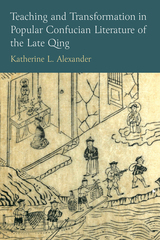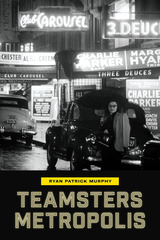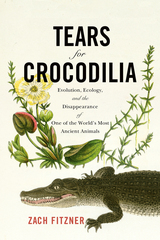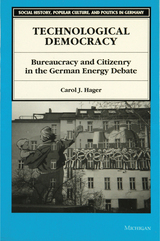

While examining different parts of the century, as well as different aspects and countries, contributors explore the intersection of literary studies with history, philosophy, psychology, and the visual arts. They discuss a creative range of topics, including feminism, nationalism, domestic ideology, the classical novel–drama–lyric poetry triad, and both aesthetic and philosophical writings. This span of subjects and approaches extends the focus of Eighteenth-Century Literary History beyond its period to project a spirit of inquiry onto literary history in general.
Contributors. Nancy Armstrong, Marshall Brown, Sanford Budick, Catherine Gallagher, Thomas M. Kavanagh, Jon Klancher, Jill Kowalik, Jonathan Brody Kramnick, Christie McDonald, Jerome McGann, Ruth Perry, Michael B. Prince, Leonard Tennenhouse

This special issue of MLQ covers examples of periodization from the early modern to the present, including a range from the individual year to the longue durée and incorporates a variety of methods from close empirical study to global concern. In the lead essay, Russell A. Berman argues that periodization saves us from the dangers of both anachronism and presentism. Srinivas Aravamudan, updating Vico, reminds usthat we lose the past if we simply leave it unexamined. In “Perioddity” Timothy J. Reiss reflects on the crossings of chronology with geology in long-range and global perspectives.
This collection strives to turn discomfort with periodization into a constructive discourse.
Contributors. Srinivas Aravamudan, Russell Berman, Marshall Brown, Margreta de Grazia, Robert J. Griffin, Anne K. Mellor, Michael North, Timothy J. Reiss

Essays included in this collection discuss the hesitant response of the American academy to Bourdieu; Bourdieu on Derrida on Kant; “pure poetry,” cultural capital, and the rejection of classicism; and the insight Bourdieu’s work lends to our understanding of the position of eighteenth-century women writers.
Contributors. Marilyn Butler, John Guillory, Elizabeth W. Harries, Jonathan Joesberg, Toril Moi, William Paulson, Trevor Ross

It includes Heather Dubrow, answering New Historicist accounts of country house ideology, J. Paul Hunter reclaiming attention to eighteenth-century couplet structures, and Garrett Stewart arguing for the comprehensive import of the local syntactic forms in syllepsis in Dickens. Ronald Levao recovers the ethical urgency behind stylistic individuation in Milton; Frances Ferguson reveals the ideology of character within Austen’s free indirect discourse; Franco Moretti traces the history of the clue as formal device in detective fiction; and Robert Kaufman shows how formal dynamics derived from Kant and Adorno animate some of the most disruptive contemporary poetry. The history of formalism is the topic of Catherine Gallagher’s meditation on the dialogue of form and time since Percy Shelley and of Virgil Nemoianu’s account of the political vicissitudes of form in the twentieth century. These wide-ranging critical interventions are introduced by Susan Wolfson’s reflections on form today and by Ellen Rooney’s polemical appeal to cultural theorists not to defeat their purposes by neglecting form.
Contributors. Heather Dubrow, Frances Ferguson, Catherine Gallagher, J. Paul Hunter, Robert Kaufman, Ronald Levao, Franco Moretti, Virgil Nemoianu, Ellen Rooney, Garrett Stewart
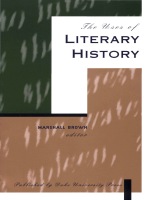
Concerned with both the theory and practice of literary history, these provocative and sometimes combative pieces examine the writing of literary history, the nature of our interest in tradition, and the ways that literary works act in history. Among the numerous issues discussed are the uses of evidence, anachronism, the dialectic of texts and contexts, particularism and the resistance to reductive understanding, the construction of identities, memory, and the endurance of the past. New historicism, nationalism, and gender studies appear in relation to more traditional issues such as textual editing, taste, and literary pedagogy. Combining new and old perspectives, The Uses of Literary History provides a broad view of the field.
Contributors. Charles Altieri, Jonathan Arac, R. Howard Bloch, Richard Dellamora, Paul H. Fry, Geoffrey Hartman, Denis Hollier, Donna Landry, Lawrence Lipking, Jerome J. McGann, Walter Benn Michaels, Rukmini Bhaya Nair, Virgil Nemoianu, Annabel Patterson, David Perkins, Marjorie Perloff, Meredith Anne Skura, Doris Sommer, Peter Stallybrass, Susan Stewart
READERS
Browse our collection.
PUBLISHERS
See BiblioVault's publisher services.
STUDENT SERVICES
Files for college accessibility offices.
UChicago Accessibility Resources
home | accessibility | search | about | contact us
BiblioVault ® 2001 - 2025
The University of Chicago Press



